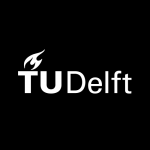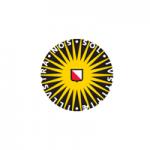项目介绍
This PhD project involves conducting state-of-the-art experiments and geochemical analyses of zircons to decode the Earth’s ancient environment
Job description
The rock record from the Hadean period has been completely erased during subsequent Earth evolution, the properties of Earth’s atmosphere, surface, and crust during this key period for the origin of life can only be studied in three ways: (1) numerical modelling; (2) comparative planetology, in which comparisons are made with Moon and Mars on which part of the Hadean rock record survived; (3) interpreting the chemical composition of individual zircons (ZrSiO4) that, unlike the rocks in which they formed, were sufficiently resistant to erosion to survive from the Hadean until the present day. A key issue with all current models is that experimental data that quantify how the compositions of zircons vary as a function of the properties of the environment in which they form are scarce or completely lacking. In this PhD project, you will systematically determine the O, Zr and Si isotope fractionation factors between zircon and the surrounding melt from which these zircons grow, as a function of temperature, pressure, water concentrations, and melt compositions.
Within your PhD research you will:
- Develop experimental techniques to grow zircon under controlled conditions (P, T and melt composition).
- Develop techniques to measure the Zr, Si and O isotope composition of zircons by MC-ICPMS.
- Interpreted the published record of Hadean zircons with the new information from your project.
The supervisors of this project will be Dr Edgar Steenstra (experimental petrology) and Dr. Pieter Vroon (geochemistry/isotopes). This project is e part of an NWO funded Pre-life consortium that will provide you with additional training and scientific workshops in related topics.
Job requirements
- We are looking for a person with a strong background in experimental petrology, geochemistry and/or planetary science.
- The project contains a large component of experimental and analytical work and therefore requires strong analytical and quantitative skill and working in a team.
- You must have a master’s degree in Earth sciences, physics, astronomy or a closely-related field.
- Experience with working with ICP-MS/MC-ICPMS and/or experimental petrology is highly desirable.
- You are expected to work independently as well as part of a diverse team, including international research partners.
- You are expected to communicate fluently in English (oral and written) and to present your results to the scientific community as peer-reviewed publications and presentations at international conferences and meetings.
TU Delft (Delft University of Technology)
Delft University of Technology is built on strong foundations. As creators of the world-famous Dutch waterworks and pioneers in biotech, TU Delft is a top international university combining science, engineering and design. It delivers world class results in education, research and innovation to address challenges in the areas of energy, climate, mobility, health and digital society. For generations, our engineers have proven to be entrepreneurial problem-solvers, both in business and in a social context.
At TU Delft we embrace diversity as one of our core values and we actively engage to be a university where you feel at home and can flourish. We value different perspectives and qualities. We believe this makes our work more innovative, the TU Delft community more vibrant and the world more just. Together, we imagine, invent and create solutions using technology to have a positive impact on a global scale. That is why we invite you to apply. Your application will receive fair consideration.
Challenge. Change. Impact!
Faculty Aerospace Engineering
The Faculty of Aerospace Engineering at Delft University of Technology is one of the world’s most highly ranked (and most comprehensive) research, education and innovation communities devoted entirely to aerospace engineering. More than 200 science staff, around 270 PhD candidates and close to 3000 BSc and MSc students apply aerospace engineering disciplines to address the global societal challenges that threaten us today, climate change without doubt being the most important. Our focal subjects: sustainable aerospace, big data and artificial intelligence, bio-inspired engineering and smart instruments and systems. Working at the faculty means working together. With partners in other faculties, knowledge institutes, governments and industry, both aerospace and non-aerospace. Working in field labs and innovation hubs on our university campus and beyond.
Click here to go to the website of the Faculty of Aerospace Engineering.
Conditions of employment
Doctoral candidates will be offered a 4-year period of employment in principle, but in the form of 2 employment contracts. An initial 1,5 year contract with an official go/no go progress assessment within 15 months. Followed by an additional contract for the remaining 2,5 years assuming everything goes well and performance requirements are met.
Salary and benefits are in accordance with the Collective Labour Agreement for Dutch Universities, increasing from € 2901 per month in the first year to € 3707 in the fourth year. As a PhD candidate you will be enrolled in the TU Delft Graduate School. The TU Delft Graduate School provides an inspiring research environment with an excellent team of supervisors, academic staff and a mentor. The Doctoral Education Programme is aimed at developing your transferable, discipline-related and research skills.
The TU Delft offers a customisable compensation package, discounts on health insurance, and a monthly work costs contribution. Flexible work schedules can be arranged.
Will you need to relocate to the Netherlands for this job? TU Delft is committed to make your move as smooth as possible! The HR unit, Coming to Delft Service, offers information on their website to help you prepare your relocation. In addition, Coming to Delft Service organises events to help you settle in the Netherlands, and expand your (social) network in Delft. A Dual Career Programme is available, to support your accompanying partner with their job search in the Netherlands.
Additional information
If you would like more information about this vacancy or the selection procedure, please contact Dr. E. S. Steenstra, via e.s.steenstra@tudelft.nl or contact Dr. P.Z. Vroon via p.z.vroon@vu.nl.
Application procedure
Are you interested in this vacancy? Please apply no later than 10 June 2025 via the application button and upload the following documents:
- CV
- Motivational letter
- A list of courses in your BSc and MSc programmes including marks
- The names and addresses of two references
You can address your application to Dr. E. S. Steenstra.
Doing a PhD at TU Delft requires English proficiency at a certain level to ensure that the candidate is able to communicate and interact well, participate in English-taught Doctoral Education courses, and write scientific articles and a final thesis. For more details please check the Graduate Schools Admission Requirements.
Please note:
- You can apply online. We will not process applications sent by email and/or post.
- A pre-employment screening can be part of the selection procedure.
- For the final candidates, a knowledge security check will be part of the application procedure. For more information on this check, please consult Chapter 8 of the National Knowledge Security Guidelines. We carry out this check on the basis of legitimate interest.
- Please do not contact us for unsolicited services.
相关项目推荐
KD博士实时收录全球顶尖院校的博士项目,总有一个项目等着你!




